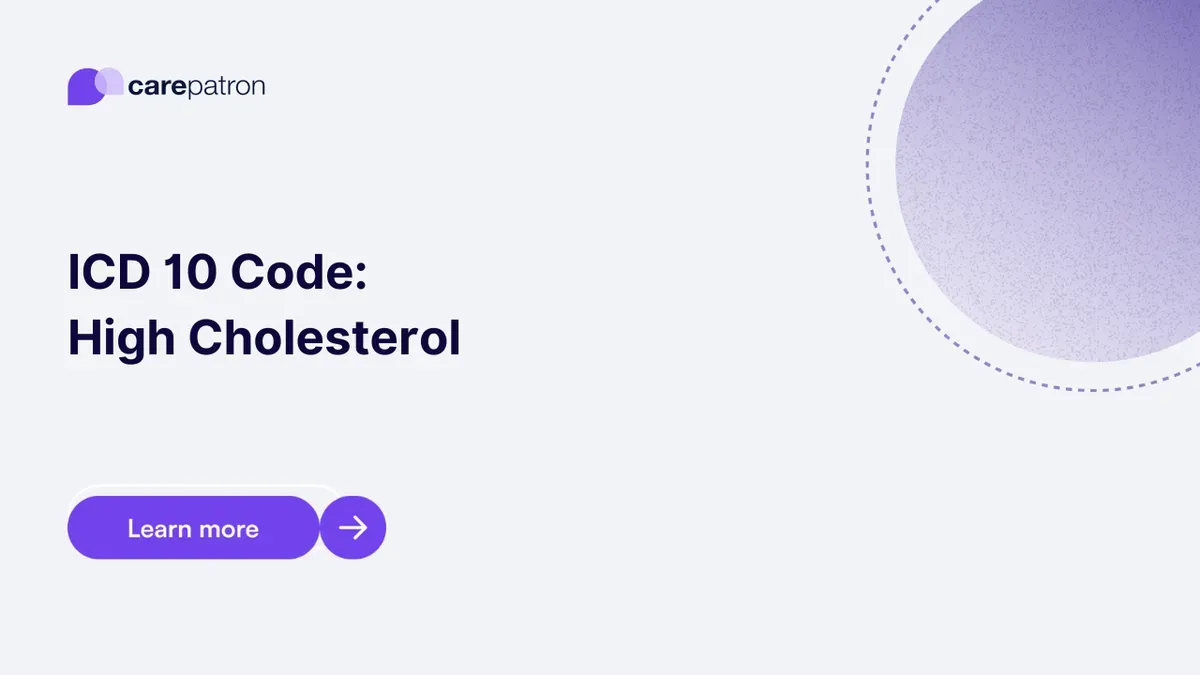
High Cholesterol ICD-10-CM Codes
Dive into ICD-10 codes for High Cholesterol. Uncover clinical insights & terminology related to coding. A comprehensive guide awaits.
Use Code
Commonly asked questions
Adults aged 20 or older should have their cholesterol measured at least once every five years.
Yes, different codes such as E78.0 and E78.1 specify the nature of the lipid elevation, helping in more accurate diagnosis and treatment.
While lifestyle modifications are crucial, some individuals might also need medications, especially if they have other risk factors or high LDL cholesterol levels.
EHR and practice management software
Get started for free
*No credit card required
Free
$0/usd
Unlimited clients
Telehealth
1GB of storage
Client portal text
Automated billing and online payments
